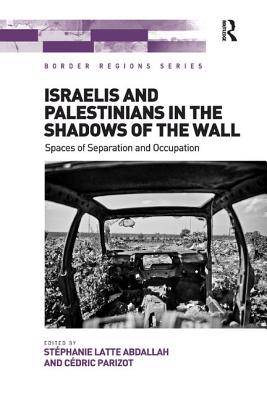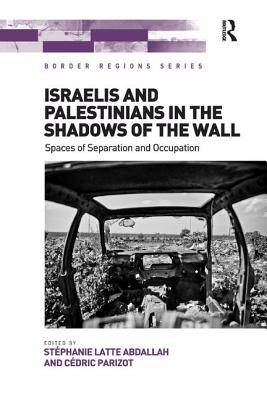
- Afhalen na 1 uur in een winkel met voorraad
- Gratis thuislevering in België vanaf € 30
- Ruim aanbod met 7 miljoen producten
- Afhalen na 1 uur in een winkel met voorraad
- Gratis thuislevering in België vanaf € 30
- Ruim aanbod met 7 miljoen producten
Zoeken
Israelis and Palestinians in the Shadows of the Wall
Spaces of Separation and Occupation
Stéphanie Latte Abdallah, Cédric Parizot
€ 64,95
+ 129 punten
Uitvoering
Omschrijving
Shedding light on the recent mutations of the Israeli separation policy, whose institutional and spatial configurations are increasingly complex, this book argues that this policy has actually reinforced the interconnectedness of Israelis and Palestinian lives and their spaces. Instead of focusing on the over-mediatized separation wall, this book deals with what it hides: its shadows. Based on fieldwork studies carried out by French, Italian, Israeli, Palestinian and Swiss researchers on the many sides of the Israeli-Palestinian divide, it highlights a new geography of occupation, specific forms of interconnectedness and power relations between Israeli and Palestinian spaces. It offers a better understanding of the transformation of people's interactions, their experiences and the ongoing economy of exchanges created by the separation regime. This heterogeneous regime increasingly involves the participation of Palestinian and international actors. Grounded in refined decryptions of territorial realities and of experiences of social actors' daily lives this book goes beyond usual political, media and security representations and discourses on conflict to understand its contemporary stakes on the ground.
Specificaties
Betrokkenen
- Auteur(s):
- Uitgeverij:
Inhoud
- Aantal bladzijden:
- 296
- Taal:
- Engels
- Reeks:
Eigenschappen
- Productcode (EAN):
- 9781138547308
- Verschijningsdatum:
- 6/02/2018
- Uitvoering:
- Paperback
- Formaat:
- Trade paperback (VS)
- Afmetingen:
- 156 mm x 233 mm
- Gewicht:
- 549 g

Alleen bij Standaard Boekhandel
+ 129 punten op je klantenkaart van Standaard Boekhandel
Beoordelingen
We publiceren alleen reviews die voldoen aan de voorwaarden voor reviews. Bekijk onze voorwaarden voor reviews.











